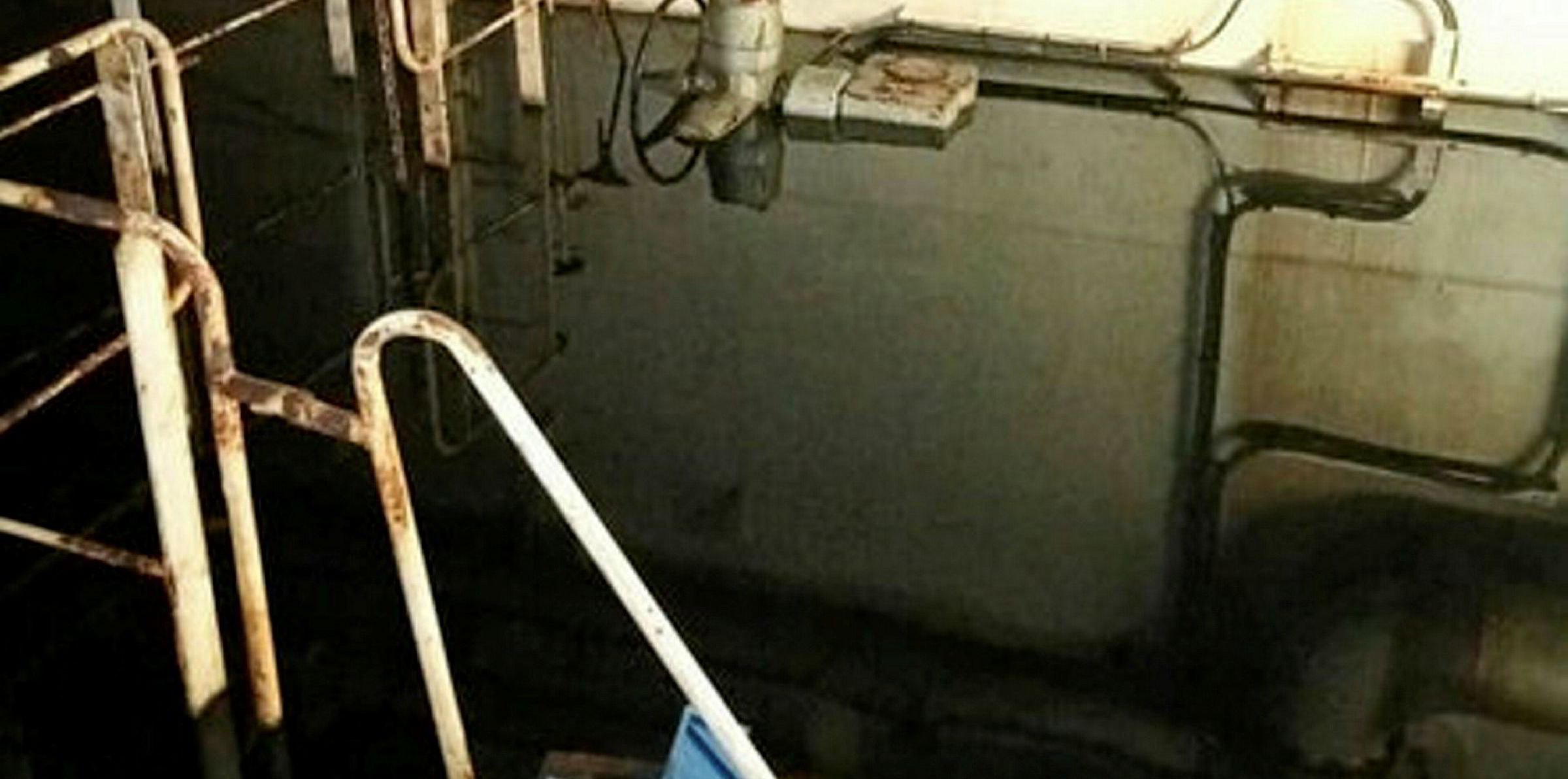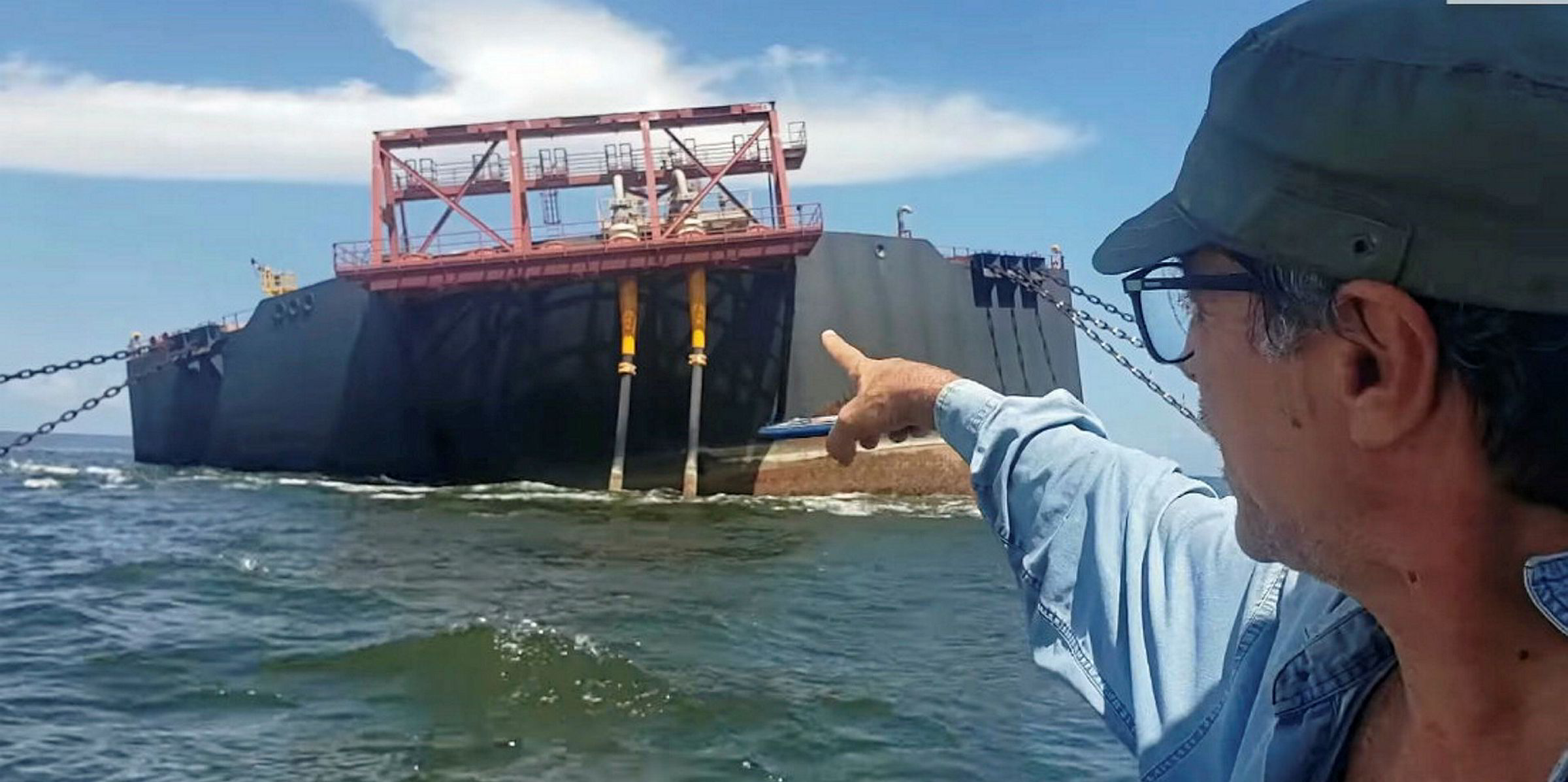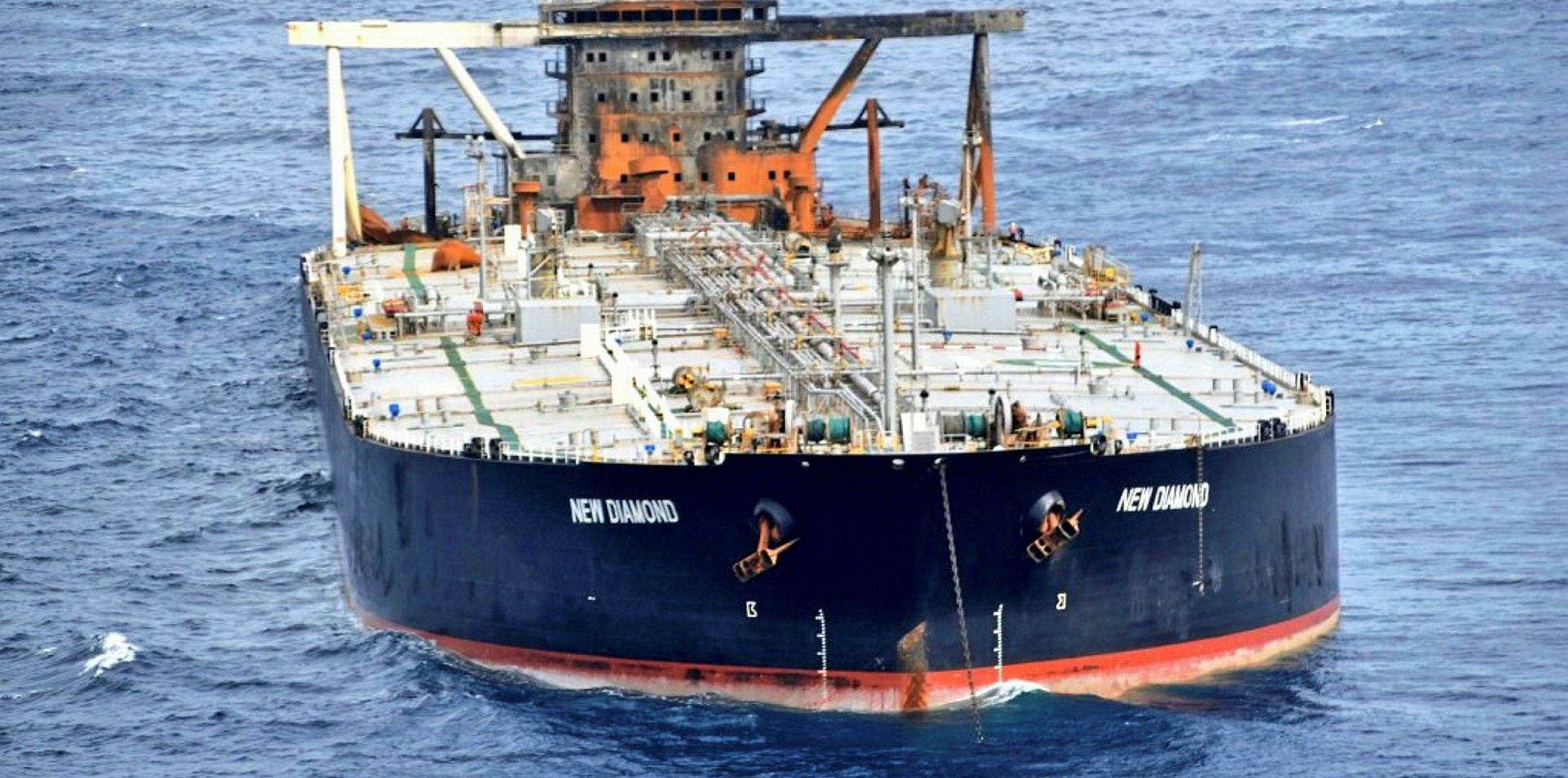Environmental campaigners are calling for urgent action after a laden floating storage and offloading vessel developed a list off Venezuela.
The 208,000-dwt Nabarima (built 2005) has 1.3m barrels of crude on board and hit the headlines last month when three metres of water was pictured inside the vessel.
Gary Aboud, corporate secretary of Trinidadian environmental group Fishermen and Friends of the Sea, went out in a small boat to inspect the vessel on 16 October. It was found listing at 25 degrees despite being held by chains.
In a video posted to Facebook, he said: "There’s no nice way to say what will happen to us. Because 1.3m barrels in an enclosed shallow basin of water can only spell doom and gloom.
"Even yesterday when we were on the high seas risking life and limb to go to the vessel to confirm the safety and stability of the vessel, the Venezuelan government put out a release and our government here in Trinidad mimicked it, [saying] that the vessel is stable and everything is okay and the tilt has been corrected."
US wants action
The US Embassy in Trinidad and Tobago called on Venezuela to take action.
"The US remains concerned by the potential risk to safety and environment posed by the Venezuelan-flagged vessel, Nabarima, in the Gulf of Paria," the embassy said in a statement.
"We strongly support immediate actions to bring the Nabarima up to international safety standards and avoid possible environmental harm, which could negatively impact not only the Venezuelan people but also those in nearby countries."
The embassy said Venezuelan state oil company PDVSA "has a responsibility to take action to avoid an environmental disaster in Venezuelan waters".
A source close to the matter said the FSO was undergoing repair, Reuters reported.
Valves being worked on

A crew is replacing the vessel’s valves, according to a person familiar with the matter who spoke on the condition of anonymity. The source said the vessel was leaning to one side in order to facilitate the repairs.
"If this thing flips, we will all pay the consequences for decades to come," Aboud told Reuters. "This should be red alert."
PDVSA did not respond to a request for comment. The company said in September the facility was in "satisfactory" condition.
Lightering plan
The Venezuelan oil ministry has previously said the oil on board would be lightered.
Italian refiner Eni owns 26% in Petrosucre, the FSO's operator controlled by PDVSA.
An Eni spokesperson said last week that the company was seeking to offload crude from the vessel, and had requested a “green light” from the US "in order to prevent any sanctions risk".
Last month, TradeWinds reported that disaster had been averted after Eni said the unit was stabilised and had resumed operations. "The conditions of the FSO are stable and a recent water leak has already been solved," the refiner said at the time.
Eni has been contacted for an update.
Internal leak?
Broken equipment and a lack of maintenance contributed to the flooding of the Nabarima’s engine room in September.
The fresh water came from internal equipment and had receded, reports said.
The FSO has been permanently moored in the Corocoro oil field for about 10 years, but upstream production was suspended in August 2019.
Maritime disasters associated with FSO operations have come under the media spotlight after the 407,000-dwt Safer (built 1976) reportedly took in water through its ageing hull off Yemen in recent months.
The FSO, which has 150,000 tonnes of light crude on board, has not been inspected or maintained since 2015.






